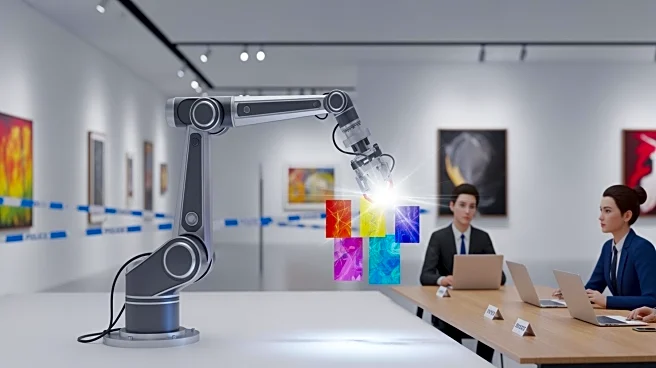What's Happening?
The Museums of Tomorrow Roundtable, a biannual gathering of international museum directors, recently took place in San Francisco, focusing on the integration of artificial intelligence (AI) in museums.
Participants discussed the rapid advancements in AI technology and its potential applications in museum settings. Key topics included the use of AI for enhancing accessibility, such as developing systems to interpret sign language, and the potential for AI to transform museum education and visitor engagement. However, concerns were raised about the uneven distribution of AI resources and the need for museums to collaborate to harness AI's full potential.
Why It's Important?
The integration of AI in museums represents a significant shift in how cultural institutions operate and engage with the public. AI offers museums the opportunity to enhance visitor experiences, improve accessibility, and streamline operations. However, the adoption of AI also presents challenges, such as ensuring equitable access to technology and addressing ethical concerns related to data use. Museums must navigate these complexities to effectively leverage AI while preserving their core mission of cultural preservation and education. The discussions at the roundtable highlight the need for strategic planning and collaboration among museums to address these challenges.
Beyond the Headlines
The broader implications of AI in museums extend beyond technological advancements. As museums incorporate AI, they must consider the cultural and ethical dimensions of this integration. This includes addressing potential biases in AI systems and ensuring that technology enhances rather than detracts from the human experience of art and culture. Additionally, museums have the opportunity to play a role in shaping public understanding of AI and its impact on society. By engaging with AI thoughtfully, museums can contribute to broader conversations about technology and its role in shaping the future of cultural institutions.










